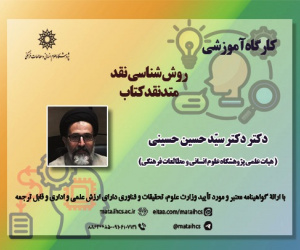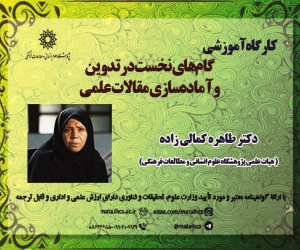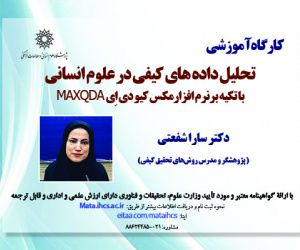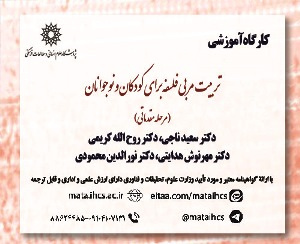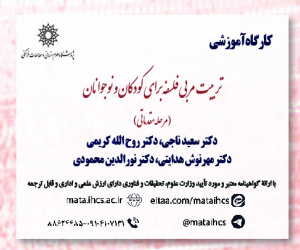تحلیل تأثیر رهبری کارآفرینانه بر رفتار نوآورانه با میانجی گری جو نوآوری و چابکی فکری (مقاله علمی وزارت علوم)
درجه علمی: نشریه علمی (وزارت علوم)
آرشیو
چکیده
در دنیای امروز، سازمان ها به ویژه در بخش سلامت، نیازمند توانایی سازگاری با تغییرات محیطی و ایجاد جو نوآورانه هستند. رهبری کارآفرینانه و رفتار نوآورانه عوامل کلیدی برای موفقیت در محیط های پیچیده و بهبود عملکرد سازمانی محسوب می شوند. از این رو پژوهش حاضر با هدف تحلیل تأثیر رهبری کارآفرینانه بر رفتار نوآورانه پرستاران بیمارستان شهید بهشتی آبادان، با میانجی گری جو نوآوری و چابکی فکری انجام شد. روش پژوهش حاضر از نوع توصیفی-همبستگی بوده و جامعه آماری آن شامل 163 نفر از پرستاران بیمارستان مذکور در سال 1401 می باشد. حجم نمونه بر اساس فرمول کوکران 115 نفر تعیین گردید و نمونه ها به شیوه تصادفی ساده انتخاب شدند. داده ها با استفاده از پرسشنامه ای 41 سؤالی در چهار بخش (رهبری کارآفرینانه، رفتار نوآورانه، جو نوآوری و چابکی فکری) جمع آوری شدند. برای تجزیه و تحلیل داده ها از روش مدلسازی معادلات ساختاری و نرم افزار Smart PLS نسخه 3 استفاده شد. نتایج نشان داد که رهبری کارآفرینانه بر جو نوآورانه با ضریب تأثیر 759/0 و مقدار T 755/19، جو نوآورانه بر چابکی فکری با ضریب تأثیر 451/0 و مقدار T 911/4، چابکی فکری بر رفتار نوآورانه با ضریب تأثیر 331/0 و مقدار T 561/3 و رهبری کارآفرینانه بر رفتار نوآورانه با ضریب تأثیر 348/0 و مقدار T 120/3 تأثیر مثبت و معناداری داشته است. همچنین، نتایج آزمون سوبل نشان داد که تأثیر چابکی فکری و جو نوآوری در رابطه بین رهبری کارآفرینانه و رفتار نوآورانه تأیید می شود. پیشنهاد می شود که رهبری کارآفرینانه با تقویت جو نوآورانه، فضای مناسب برای مشارکت کارکنان و بهره گیری از ایده های نوین را به منظور بهبود رفتار نوآورانه و ارتقاء عملکرد پرستاران در بیمارستان فراهم نماید.An Analysis of The Entrepreneurial Leadership Effect on Innovative Behaviors: The Role of Innovation Climate and Cognitive Agility as Mediators
In today's dynamic environment, organizations, particularly within the healthcare sector, must adapt to changing circumstances and nurture an innovative culture. Entrepreneurial leadership and innovative behavior are essential for success in complex settings and play a critical role in enhancing organizational performance. This study examines the impact of entrepreneurial leadership on the innovative behavior of nurses at Shahid Beheshti Hospital in Abadan, with innovation climate and cognitive agility serving as mediating variables. Employing a descriptive-correlational methodology, the research focuses on a statistical population of 163 nurses from the hospital in 2022. The sample size, calculated using Cochran's formula, comprised 115 participants selected through simple random sampling. Data were gathered through a 41-item questionnaire divided into four sections: entrepreneurial leadership, innovative behavior, innovation climate, and cognitive agility. Analysis was conducted utilizing structural equation modeling (SEM) with Smart PLS version 3 software. Results indicated that entrepreneurial leadership significantly and positively influenced the innovation climate (path coefficient = 0.759, T = 19.755). The innovation climate positively affected cognitive agility (path coefficient = 0.451, T = 4.911). Furthermore, cognitive agility had a positive impact on innovative behavior (path coefficient = 0.331, T = 3.561). Entrepreneurial leadership also exhibited a significant positive effect on innovative behavior (path coefficient = 0.348, T = 3.120). Additionally, Sobel's test confirmed that both cognitive agility and innovation climate significantly mediated the relationship between entrepreneurial leadership and innovative behavior. It is recommended that entrepreneurial leadership fosters a supportive innovation climate, thus creating an environment conducive to employee participation and the application of innovative ideas to enhance innovative behavior and improve the performance of nurses in hospitals.


